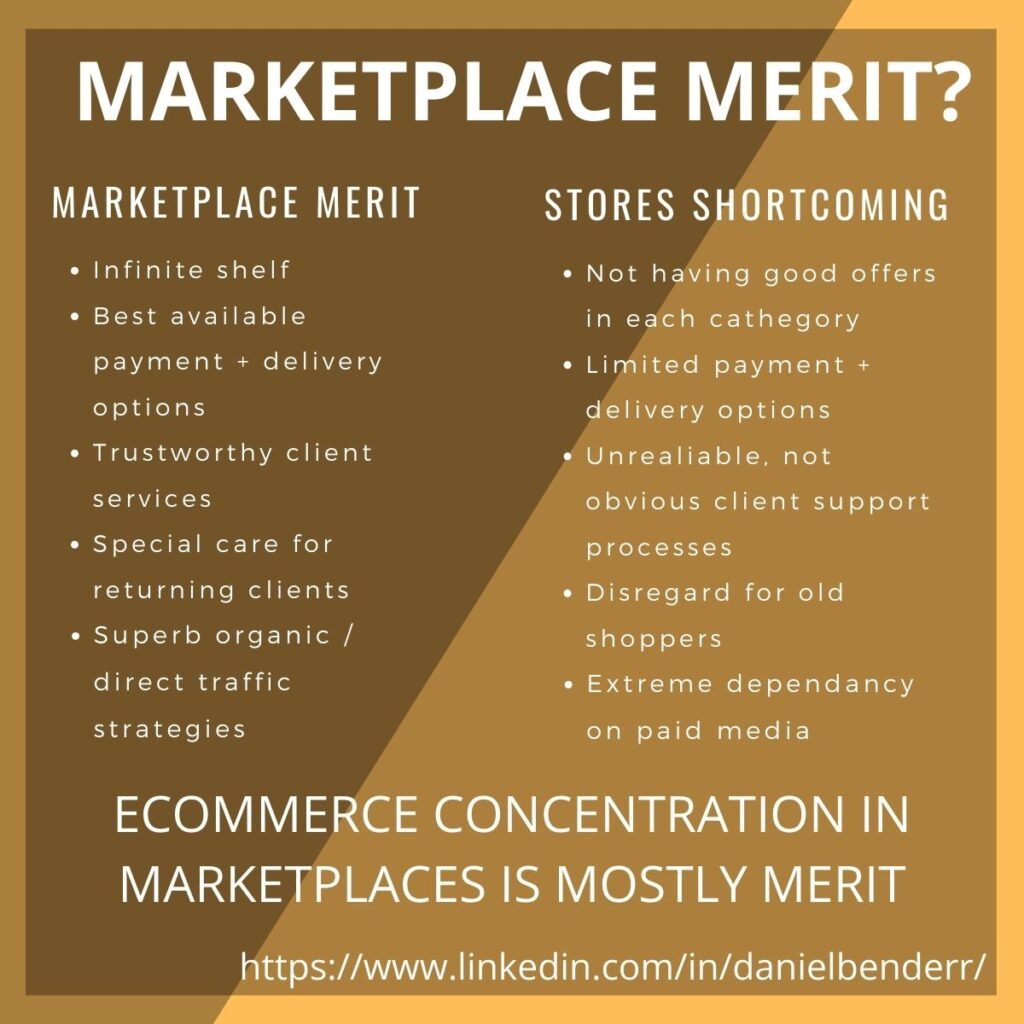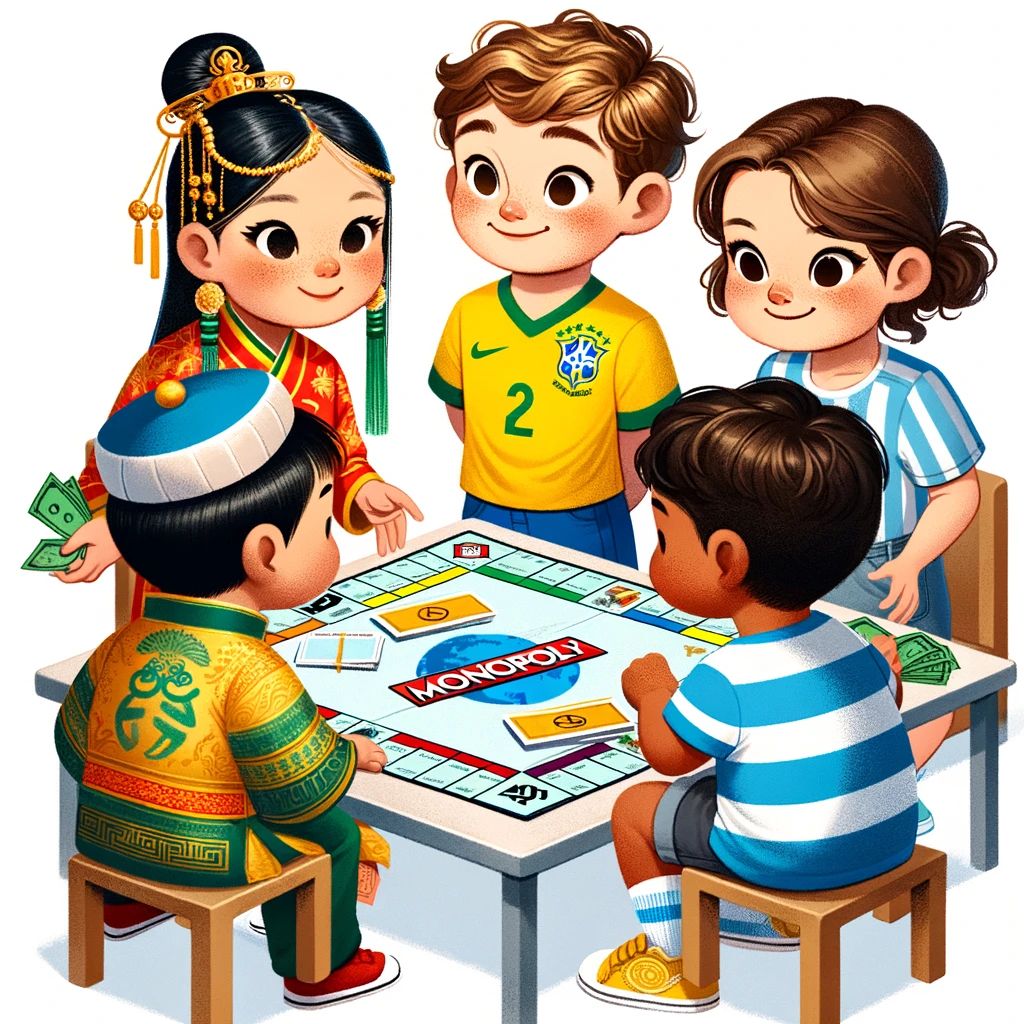Most ecommerce markets show somekind of concentration in one or two large marketplace players. As a free market supporter, it actually bothers me to see that a extreme large (and growing) share of each national online GMV for a few selected players.
In United States Amazon leads with almost 40%.
In China Alibaba Group leads with a wooping 45% share.
Mercado Libre leads in Argentina with 20x more traffic than next contender (Carrefour Argentina)
In Brazil the scenario is somewhat different. Mercado Livre Brasil has close to 15% of all ecommerce GMV and is larger than the number 2 and 3 combined (Shoppe and Amazon).

Why is that? Is it merit or market flaw?
Even so, suming up all marketplaces in Brazil, it seems obvious there is a large concentration of GMV in this sort of business.
A market flaw would be something artificial, such an specific law regulation or criminal/monopolistic conduct. In the other hand, merit would be result of superior offer from the leading players.
I am used to analyze ecommerce stores, from SMB to large companies and it usually is quite clear why they keep loosing sales to marketplaces.
In most cases, they fall behind in comparison. And it is not about price.
They have limited mix in the cathegories they should own.
Offer limited payment and delivery options.
Don´t have a clear, obvious client support.
Don´t have a clear strategy to deal with old time shoppers, nor organic growth, and definitely no branding work. So they have to spend a large chunk of their budget on paid media
And that chunk is usually greater than marketplaces comissions.
At least in open markets (not you China), the most probable answer to the question abou “merit or flaw” is definetely merit.

